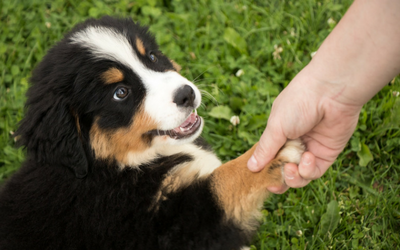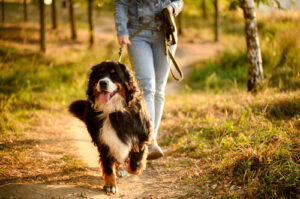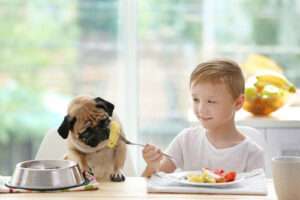They’re cute and cuddly and the unconditional love they offer is priceless for any new puppy parent.
On March 23, National Puppy Day celebrates our four legged little companions and all of the love and affection they bring into our lives.
With the hope of improving the lives of puppies everywhere, National Puppy Day also recognizes the need to raise awareness about puppy mills and helps prospective pet owners considering adoption.
Bringing a new puppy home is always exciting, and no doubt a fun time, but a lack of preparation or puppy care experience can make those early days stressful.
After you have chosen your puppy and while waiting for the big day, you will need to puppy-proof your home.
The following covers essential supplies you’ll need before introducing your puppy into your home.
- Two non-tip bowls for food and water.
- A crate of an appropriate size. It should be able to accommodate the puppy and come with a tray to make it easier for cleaning up any accidents.
- Soft, washable bedding for the inside.
- If you have chosen not to use a crate you may need some alternative bedding.
- Toys and chew toys.
- Food that the puppy is used to eating. (dietary changes can be made later if you wish)
- Collar and lead. (snap on collars are ideal for puppies)
- Shampoo for bath time.
- Brushes and grooming tools.
- Baby gates if you need to keep the puppy away from stairs or kept in a certain room.
- Book on puppy care.
There are many potential hazards for a new puppy as they begin to explore their new home. Puppies, like small children, will investigate everything. For this reason, it is important to thoroughly puppy-proof your house. This will help protect both your new puppy and your belongings.
Some important things to check include:
- Items with electrical wires should be placed out of reach.
- Remove hanging objects such as long curtains and tablecloths, as this is only too tempting for a puppy to pull and chew.
- Many houseplants can be poisonous. Place plants in areas of the home where puppies cannot access them.
- Do not leave shoes, bags and other items lying around, as these might look like great chew toys to your new puppy.
- If you have a backyard garden, make sure it is secured. Any broken fences or gaps that a puppy could possibly squeeze through, should be repaired.
- Children in the home should be taught the basics of puppy care including safe puppy handling, not to disturb them while they eat, and not to wake them when they are sleeping.
- Try to establish a routine for both your family and your puppy. Try to feed, exercise and get the puppy to bed at the same times each day.
As a new puppy parent, you should also register with a veterinarian and book any necessary vaccination appointments. You can also speak with your veterinary clinic about a recommended vaccination schedule.
You may also want to think about signing your puppy up for training classes. Puppies can learn how to interact with other dogs, and you may also learn some good tips about puppy care.
LifeLearn News
Note: This article, written by LifeLearn Animal Health (LifeLearn Inc.) is licensed to this practice for the personal use of our clients. Any copying, printing or further distribution is prohibited without the express written permission of Lifelearn. Please note that the news information presented here is NOT a substitute for a proper consultation and/or clinical examination of your pet by a veterinarian.






